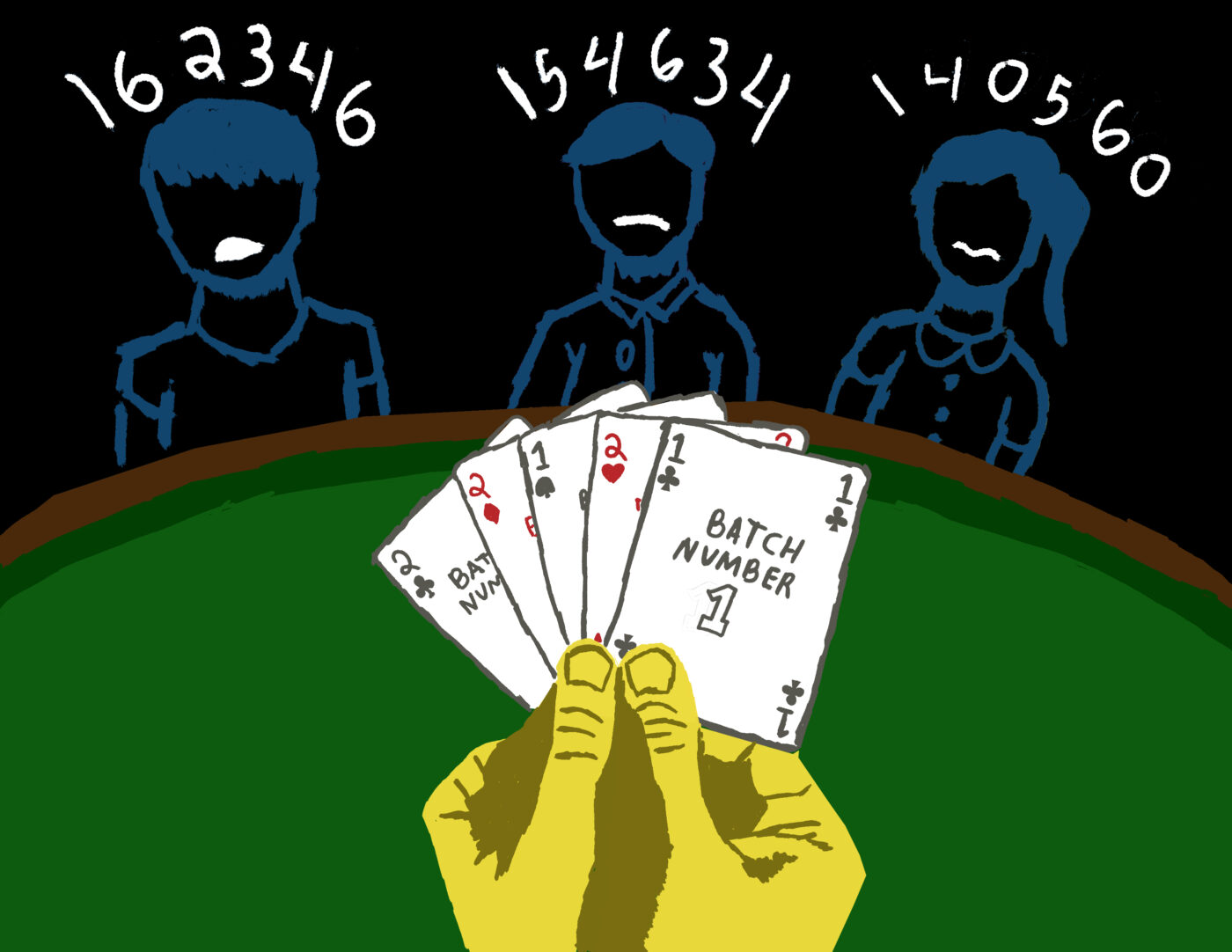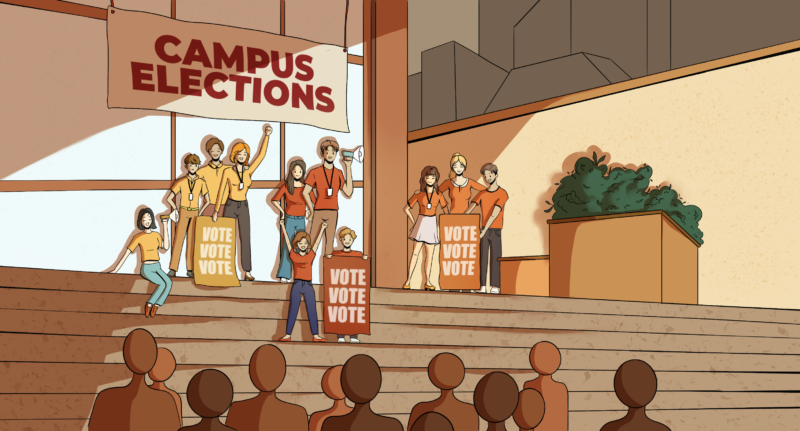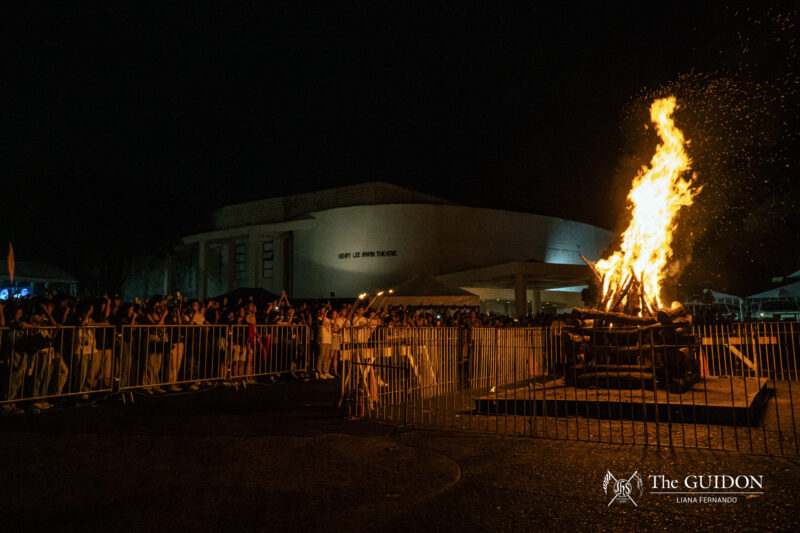In the days leading up to the start of the new semester, the students of this university have one thing on their minds: enlistment. As the break comes to a close, newsfeeds and timelines are flooded with students concerned about professors, schedules, and slots left. The looming uncertainty of enlistment that accompanies the dawning semester has become a staple of the Ateneo experience.
A student’s enlistment experience is hinged on a batch number that appears on the Ateneo Registration Committee’s (RegCom) website. This number categorizes students into batches, and determines whether they will be beggars or choosers in the “Hunger Games” of Ateneo enlistment.
Ateneans place massive importance on their assigned batch numbers because so much is at stake. This applies whether or not you are included in the Dean’s List, worried about graduating on time, concerned about course retention, or wondering if you will still be in Ateneo the next year.
Issues encountered during enlistment such as the perpetual shortage of slots, unfavorable batch numbers, and long lines during Manual Registration (ManReg) seem to occur on a regular basis. Is this a symptom of an inherent flaw in the system or of something else?
Stormy weather
One of the more well-known issues is the shortage of slots for in-demand classes. Anyone who has gone through online enlistment can relate to the adrenaline rush of grabbing one of the last few remaining slots. For others, there are only helplessness and frustration felt when there are no slots for the classes they need.
ManReg follows, and a student can sit in line for hours only to be told that departments will not be opening up any more slots. Those who are lucky to get any classes at all often end up settling for 8 AM classes, or brace themselves for an entire semester under an infamous “terror prof.”
The frustration from a less-than-ideal outcome makes it easy to blame and point fingers at RegCom, which is in charge of mediating the enlistment process. This frustration can lead to hasty generalizations about a flawed system or an incompetent administration. While this may be understandable due to the perpetual shortage of class slots during enlistment, student habits are part of the problem.
Diplomacy and international relations senior Sophiya Navarro, who oversees School of Social Sciences enlistment for RegCom, explains the mechanism used to allot slots for classes. “AISIS informs us how many students need a certain class at a time. There is a deadline for advisement. After that deadline, AISIS counts how many are advised for a certain class. That number is forwarded to each department, so the departments can allot classes accordingly.”
One of the main reasons behind the shortage of class slots is student behavior. “Student habits can cause problems,” according to Navarro. “If they enlist online for a class that they weren’t advised early for, they take away a slot that was assigned for a student who advised early.” This creates a shortage because the demand is higher than anticipated.
“In intersession, a lot of students want to take subjects in advance,” says Navarro. “But there is a logic behind it in your curriculum, it is arranged in a way that [designs] our progression in college. Messing it up creates more problems than it should, and the problem aggregates.” This adds to the complications because adjusting the Individual Program of Study (IPS) beyond the deadline is a common practice for Ateneans, specifically those who advance or shuffle classes for planned minors.
When students also change their IPS a few days before enlistment, or during enlistment itself, the problem compounds even further. Legal management senior Jenica Sy, who oversees School of Science and Engineering enlistment for RegCom, points out the consequences of students not following the deadlines. “If students don’t follow [the deadline], kulang ‘yung allotment because the department secretaries aren’t notified that a certain number of students have to take a class.”
A roll of the dice
For Ateneans, batch numbers can be the source of either uncertainty and frustration, or gratification and relief. While many students often experience these maddening situations, there are reasons behind why we have the current system in place. The primary reason behind batching is not simply to schedule when students can enlist in classes.
It is a common misconception that the batch numbers are generated by RegCom, when they are really generated by the Office of Management Information Systems. There is also a mechanism in place to ensure that batch numbers are distributed fairly to the student body. “If you are batch one [for] first sem, you’ll be batch two [for] second sem for sure, [and vice versa],” says Navarro.
“The second sem batch number is always the inverse of the first sem batch number. A student can be batch two for the second sem and batch two for the first sem of the following year, but will never be batch two twice in one [school] year,” he adds.
The rationale behind batch numbers is that it directs traffic for both online and manual registration. “Kailangan talaga ng batching kasi AISIS will crash…AISIS can only accommodate 2,500 [students] at once,” she says.
The ManReg batch numbers are also the inverse of the online batch numbers. “Someone who was batch one for online registration will be batch three or four for manual registration,” says Sy. “We allot more time for batch one and two during ManReg and less time for batches three and four.” They operate under the assumption that “people who were batch two for online enlistment will have more problems, so they need more time during manual registration.”
Green grass
De La Salle University (DLSU) has a different enlistment system and a different rationale behind it. Those included in the Dean’s List are allowed to enlist ahead of the rest of the students.
Patrick Gabriel, a DLSU Marketing junior, believes that “the additional benefits of being an honor student such as advanced enrollment and unlimited cuts add to the motivation for students to reach their potential. The benefits are fair as [honor students] are only enjoying the fruits of their labor.” The rationale behind allowing Dean’s Listers to enlist first is that it adds incentive for students to work harder and earn higher grades.
However, there is a downside to this. DLSU’s enlistment system discriminates against academic non-achievers. Gabriel added that “the system is effective in motivating students to get higher grades, but it has its weaknesses as it can result in the rest of the students running out of good professors and leaving them with terror profs.”
For Navarro, she believes that Ateneo’s system is “fair,” because “it does not segregate students based on what they did.” What makes Ateneo enlistment different from DLSU’s is that it treats everyone the same, regardless if the student is a Dean’s Lister, someone under academic probation, or just an average student. “Everybody has the chance to redeem themselves. It depends on how you utilize the system,” Navarro adds.
Perpetual imperfection
Despite years of encountering what seems to be perennial problems in online enlistment, the benefits that come with the current system tend to be taken for granted by many Ateneans. “Students are given plenty of freedom to choose their classes and schedules,” says Sy. “If you don’t get classes online you have the option of ManReg or load revision. The system has a lot of leeway, and there is still some guarantee that you can get your classes.”
The Ateneo enlistment system is effective in the sense that it distributes class slots to the student body in the fairest way possible. However, there are some flaws in the system that cannot be ignored for long. “There are times when the system works, but it is still largely dependent on chance,” says Navarro. “There are factors out of our control, like the availability of profs, time slots available, and classroom sizes. There are limited sources for these things.”
While this is true, the recurring issues faced in enlistment stem from a lack of information on the issue. “One of the things we want to improve on is information dissemination,” says Navarro. “We’ve done the best we can, we provide the link, we provide the platforms they need.” She adds, “A slot you take is a slot you take from someone else, we have to be mindful.”
The fact that students do not know they are part of the problem is a big factor behind the issues of the enlistment system. “A lot of [problems are caused by student habits],” Navarro explains. “If you process your shifting and your minoring early on, the system will work.”
As things stand, some issues encountered during enlistment are not going away anytime soon. The system is designed to work under the premise that students have planned everything ahead, but many do not always have the luxury to do so. Students will always have emergencies or will want to change their IPS and advance classes.
But to make things better, changes will have to be made down the line. Students may be forced to change their advisement habits, or the administration may overhaul a fair, albeit flawed system. Either way, everyone will need to work together to improve the enlistment experience.







